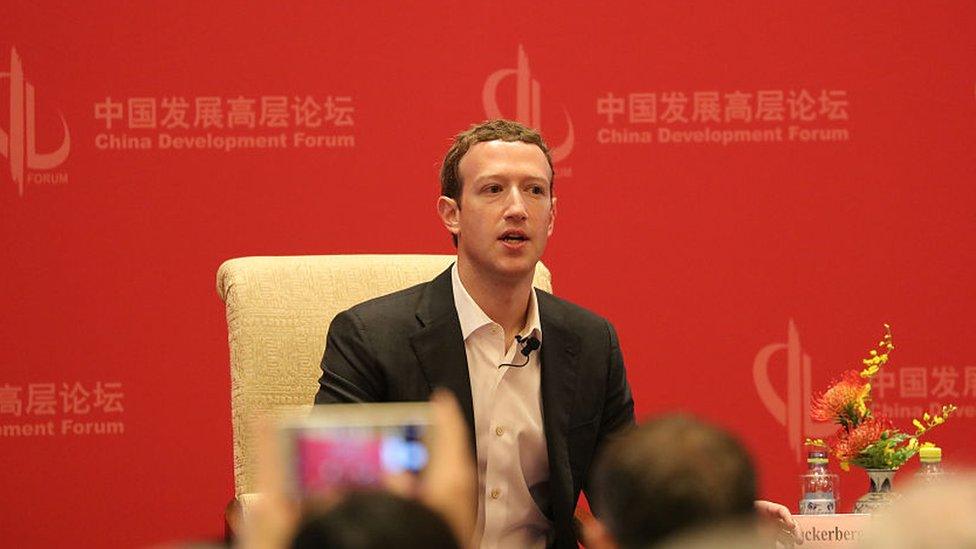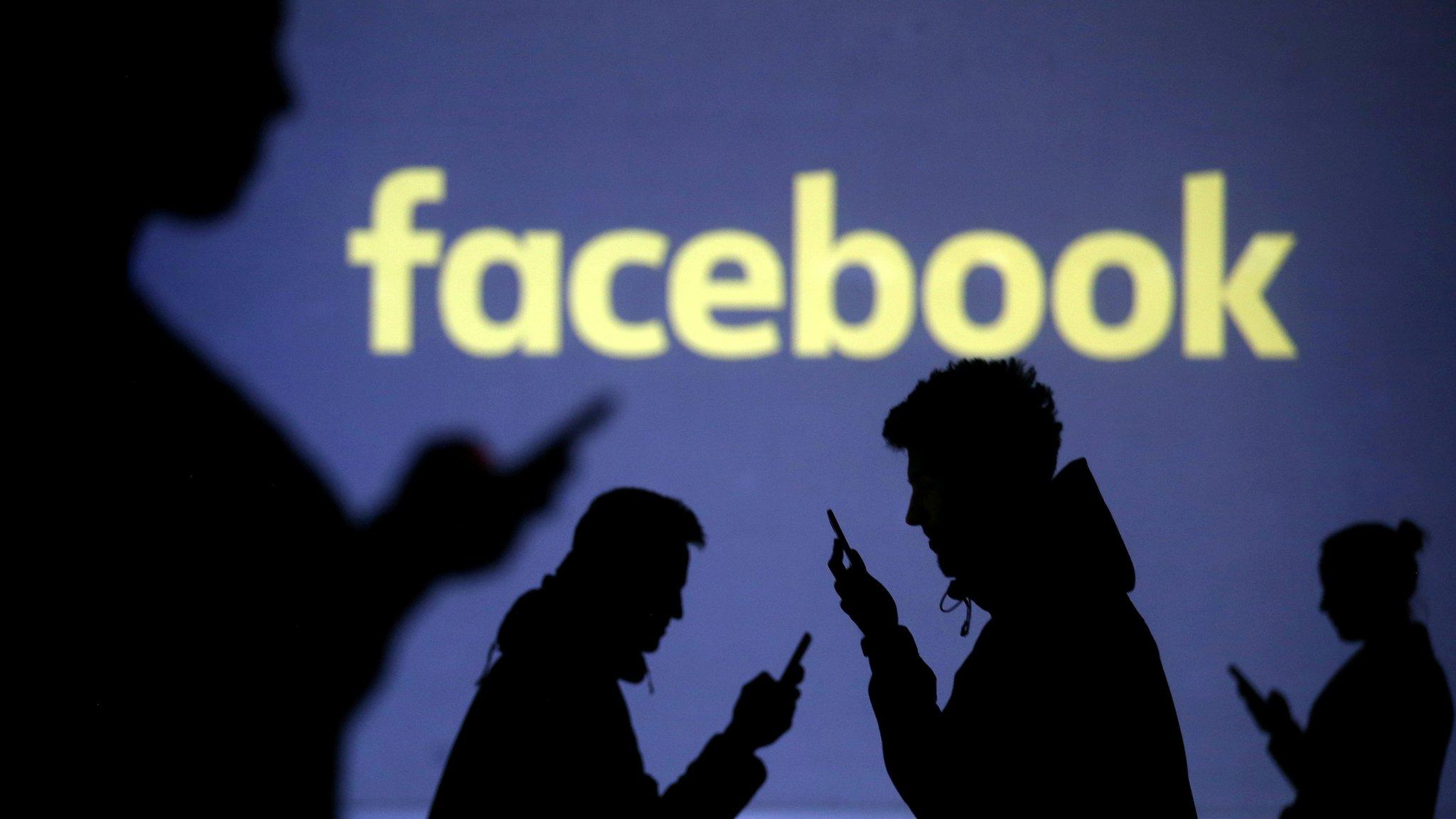Facebook's return to China thrown into doubt
- Published

Facebook's plans for an imminent comeback in China's huge social media market appear to have stalled.
The company, like all major US tech platforms, has been blocked in the country since 2009.
Facebook said on Wednesday it had secured a licence to set up an "innovation hub to support Chinese developers, innovators and start-ups".
But 24 hours later, there are widespread reports the licence has been withdrawn from the government database.
It is possible, according to reports, that Facebook has fallen victim to competing political and business interests.
While the innovation hub would not have allowed Chinese social media consumers to use Facebook's main app, or Facebook-owned Instagram and WhatsApp, it would have given the company an important foothold back in China.
Facebook founder, Mark Zuckerberg, has made several attempts to charm Chinese officials over the years. Two years ago he jogged through Tiananmen Square without a facemask, appearing to downplay high-levels of pollution, he is reported to have read the collected speeches of Xi Jinping and has gone to the trouble of learning Mandarin.
Chinese users can only access domestic social media sites such as Weibo, Renren and YouKu, which the government can monitor.
According toan official filing this week, Facebook was registered in the southern China city of Hangzhou and the operation financed with an investment of £30m. The filing was seen by Reuters and the New York Times on China's National Enterprise Credit Information database.
The social media giant had said the office in China would be the same as hubs it has set up elsewhere, such as in France, Brazil, India and South Korea.
"Our efforts would be focused on training and workshops that help these developers and entrepreneurs to innovate and grow," it said.
It was unclear exactly why the licence to open the hub was subsequently withdrawn. The New York Times suggested it may have been because China's internet regulator, the Cyberspace Administration of China, was angry it had not been consulted., external about the approval process.
- Published25 July 2018

- Published6 June 2018
